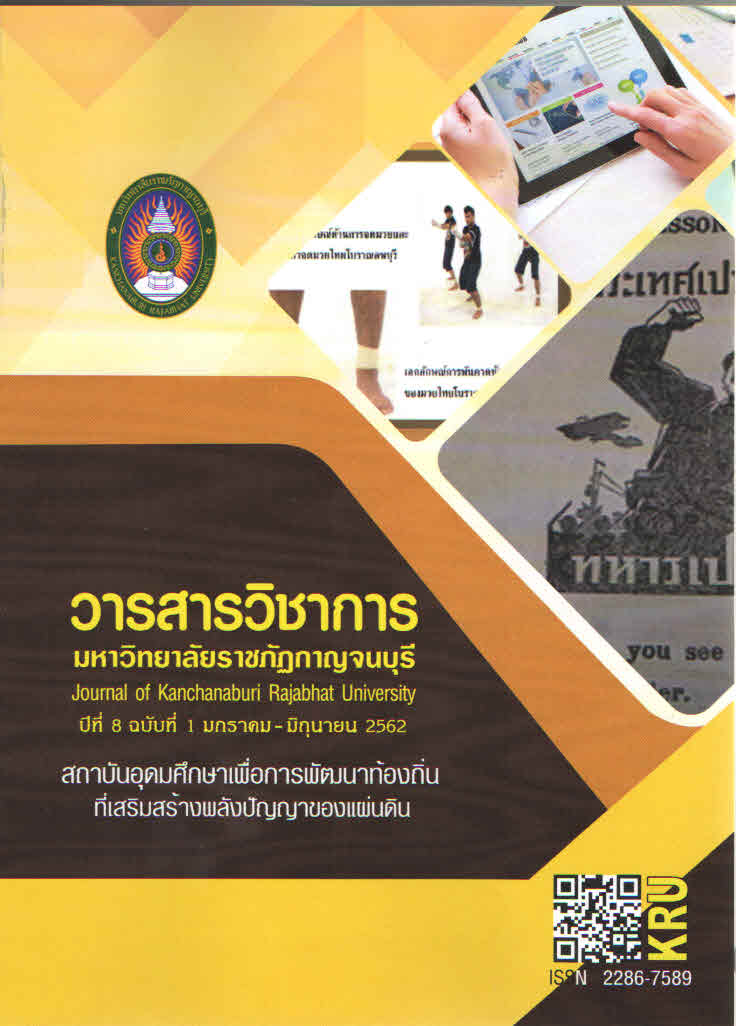COMPARISON ON EXPECTATION AND RECOGNITION OF QUALITY OF GRADUATED NURSES BASED ON USERS’ PERCEPTION
Main Article Content
Abstract
The objective of descriptive research was to compare expectation of the graduate’s quality based on learning standard framework, 21st century learning and identity of the graduates of bachelor of nursing science program, Boromrajonani College of Nursing Chainat in academic year 2016. The population comprises of 83 users of the nursing graduates. The data was collected by questionnaire. The data was then analyzed by the descriptive statistics and t-test for dependent samples.
The research yielded that the average scores on expectation on the graduate’s quality compared with the learning standard and qualification frameworks of bachelor of nursing science program, 21st century learning and identity of the graduates were different both in overall and each dimension with statistical significance (p<.01). The expectation on the graduate’s quality based on the qualification framework received the highest score. The dimension received the highest average score was intelligence while numerical analysis, communication and information technology skills received the lowest average. The graduate’s identity and the 21st century learning were at the highest levels. The result of the quality assessment based on the 6 dimensions of the qualification framework was at high level. The dimension received the highest average was ethics while intelligence received the lowest average. The graduate’s identity received high score and the 21st century learning was at the high level. Therefore, the College should revise learning methods and extracurricular activities particularly those that will improve the intelligence skills. The students should be encouraged to learn by themselves both from textbooks, empirical evidence, electronic media while applying and integrating wisdom into health promotion practice.
Article Details
References
ทิศนา แขมมณี. (2557). ศาสตร์การสอน : องค์ความรู้เพื่อการจัดกระบวนการเรียนรู้ที่มีประสิทธิภาพ (พิมพ์ครั้งที่ 18). กรุงเทพฯ: จุฬาลงกรณ์มหาวิทยาลัย.
นันทิตา เพชราภรณ์. (2553). ความคาดหวังของผู้ใช้บัณฑิตที่มี่ต่อคุณลักษณะของบัณฑิตที่สำเร็จการศึกษาระดับปริญญาตรี ปี การศึกษา 2553 สาขาวิชาการตลาดวิทยาลัยราชพฤกษ์. กรุงเทพมหานคร: วิทยาลัยราชพฤกษ์.
บุษยา วงษ์ชวลิตกุล, ทศพล ปราชญ์ปรีชา และสงวน วงษ์ชวลิตกุล. (2558). ความคาดหวังความสามารถหลักในการทำงานของนิสิต นักศึกษาสหกิจศึกษา ในทรรศนะของนิสิต นักศึกษา และผู้ประกอบการ กลุ่มวิศวกรรมศาสตร์และเทคโนโลยี. ค้นเมื่อ ตุลาคม 23, 2561, จากhttps://www.tci-thaijo.org/ index.php/jitubru/article/ view/58135
มณี อาภานันทิกุล วรรณภา ประไพพานิช สุปาณี เสนาดิสัย และพิศสมัย อรทัย (2557). จริยธรรมในการปฏิบัติการพยาบาลของพยาบาลไทยตามการรับรู้ของผู้บริหารทางการพยาบาล. วารสารสภาการพยาบาล, 29 (2), 5-20.
วัลลภา เทพหัสดิน ณ อยุธยา. (2544). การพัฒนาการเรียนการสอนทางการอุดมศึกษา (พิมพ์ครั้งที่ 3). กรุงเทพมหานคร: จุฬาลงกรณ์มหาวิทยาลัย.
วิจารณ์ พานิช. (2555). วิถีการเรียนรู้เพื่อศิษย์ในศตวรรษที่ 21. กรุงเทพมหานคร: มูลนิธิสดศรี-สฤษดิ์วงศ์.
ศุจิกา ภูมิโคกรักษ อัจฉรา สุคนธสรรพ์ อัญญารัตน์ ว่องวิริยะพันธ ธันยาภรณ์ เหลี่ยวตระกูล และวัชรี นาคะป่า. (2559). คุณลักษณะของบัณฑิตที่พึงประสงค์ตามมุมมองของผู้ใช้บัณฑิตคณะพยาบาลศาสตร์ มหาวิทยาลัยเชียงใหม่. พยาบาลสาร, 43 (ฉบับพิเศษ), 151-161.
สุทิศา สงวนสัจ, มณฑาทิพย์ สุรินทร์อาภรณ์, จารุณี จาดพุ่ม,ทิพวรรณ ตั้งวงค์กิจ และสุวัฒนา เกิดม่วง. (2559). คุณภาพและอัตลักษณ์ของบัณฑิต วิทยาลัยพยาบาลบรมราชชนนีชัยนาท ปีการศึกษา 2558. ชัยนาท: วิทยาลัยพยาบาลบรมราชชนนี ชัยนาท.
Best, J. W. (1997). Research in Education (3rd ed.). Englewood Cliffs N.J.: Prentice-Hall.
Vroom, V. H. (1990). Manage people not personnel: Motivation and performance appraisal. Boston: Harvard Business School Press.


